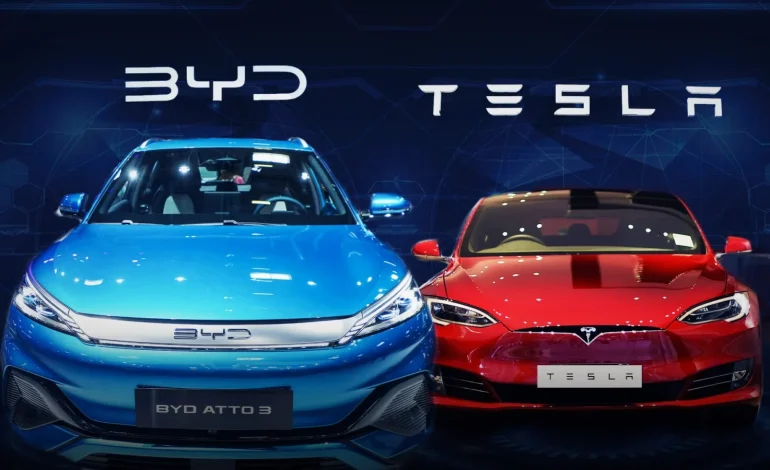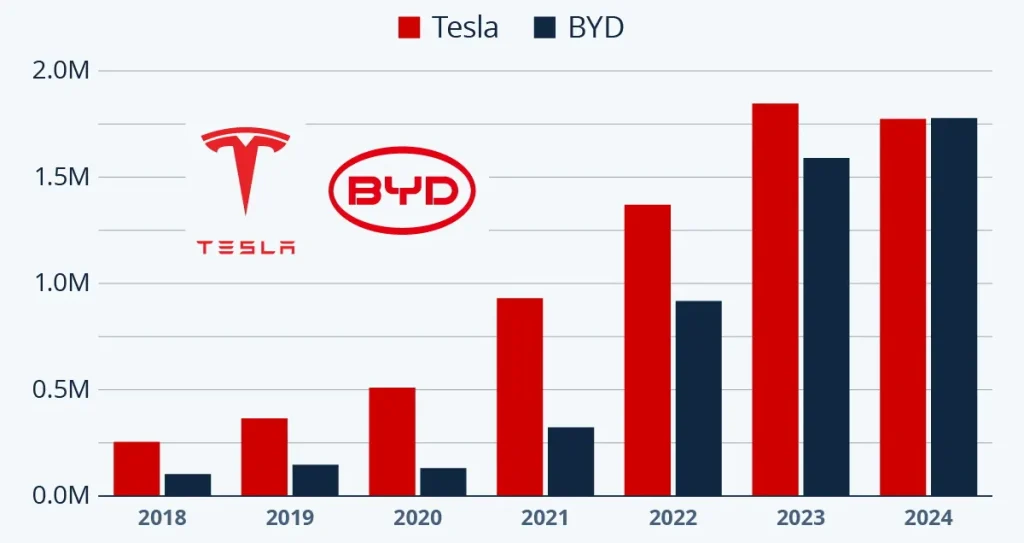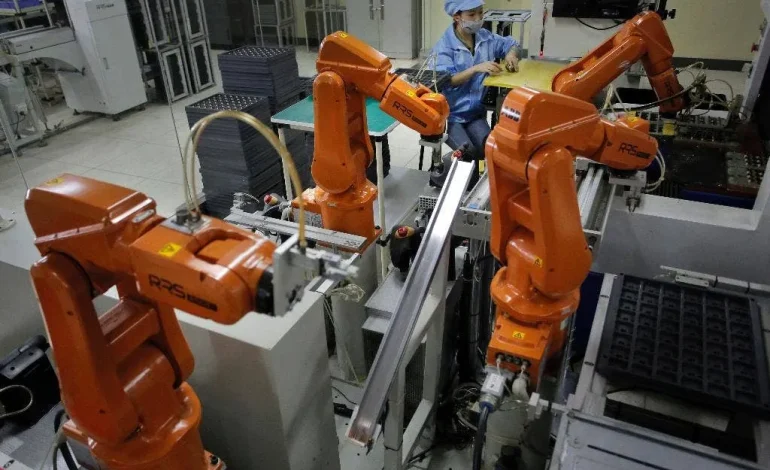BYD Surpasses Tesla in Global EV Export Rankings

Introduction
China’s electric vehicle (EV) manufacturer BYD has overtaken Tesla in global EV export rankings, marking a significant milestone in the international automotive market. The company’s growth reflects a combination of aggressive production expansion, government policy support, and rising global demand for clean energy vehicles. BYD’s achievement also signals a shift in the competitive landscape, as Chinese EV manufacturers gain prominence in international markets and challenge established players from the United States and Europe.
BYD’s Export Growth
According to the China Association of Automobile Manufacturers (CAAM), BYD exported over 450,000 EVs in the first nine months of 2025, surpassing Tesla’s global shipments of 420,000 during the same period. The growth is largely driven by strong demand in Europe, Southeast Asia, and Latin America, where BYD’s affordable pricing, extended range models, and diversified product lineup have resonated with consumers.
China’s domestic policies have further supported BYD’s international expansion. Export incentives, favorable financing for overseas buyers, and collaboration with local distributors have enabled the company to scale quickly. Additionally, BYD’s investment in overseas assembly and logistics hubs has reduced delivery times and strengthened its competitive position in multiple regions.
Technological Advantages
BYD’s success is underpinned by advancements in battery technology and vehicle design. The company’s proprietary Blade Battery, known for enhanced safety, durability, and energy density, has become a key selling point in export markets. Its energy efficiency, combined with reduced manufacturing costs, allows BYD to offer competitive pricing while maintaining high safety standards.
The company has also focused on modular vehicle platforms that facilitate rapid production and customization. This approach enables BYD to respond to diverse market demands, ranging from compact urban vehicles to high-capacity electric buses. By integrating AI-driven manufacturing processes and predictive maintenance systems, the company has maintained production efficiency despite increasing global demand.
Market Strategy
BYD’s global strategy involves targeting emerging markets and regions with supportive regulatory frameworks for EV adoption. Europe, in particular, has seen substantial BYD growth due to policies incentivizing electric mobility, emission reductions, and subsidies for EV buyers. In addition, partnerships with local dealerships and service networks ensure customer confidence and after-sales support.
In Southeast Asia, BYD has leveraged government agreements and local production collaborations to enhance market penetration. The company’s electric buses have been adopted in cities such as Jakarta and Bangkok, demonstrating versatility in urban mobility solutions and positioning BYD as a leader in both consumer and public transportation segments.
Economic and Industry Implications
BYD’s rise has broader implications for the global automotive industry. The shift in export leadership reflects China’s growing influence in EV technology, supply chains, and manufacturing efficiency. Traditional EV leaders face increased competition as Chinese companies bring high-quality products at competitive prices to international markets.
For investors, BYD’s performance indicates potential long-term growth opportunities in the EV sector. Strong export figures, combined with government support and innovation in battery and AI technologies, position BYD favorably for future revenue expansion. Analysts anticipate that the company will continue to increase its market share, particularly in regions with robust EV adoption incentives.

Policy Support and Domestic Synergy
China’s government has played a crucial role in BYD’s growth. Policies promoting green energy, electric mobility, and domestic innovation have allowed companies like BYD to expand rapidly. Tax incentives for EV manufacturers, subsidies for research and development, and support for international collaborations have strengthened the company’s competitive advantage.
Additionally, BYD benefits from the domestic ecosystem of suppliers, battery manufacturers, and software developers. Close collaboration with domestic technology firms ensures seamless integration of AI and IoT systems in vehicle design and production. This synergy enhances operational efficiency, reduces costs, and accelerates innovation cycles.
Challenges and Considerations
Despite its achievements, BYD faces challenges in maintaining leadership. Competition from Tesla, NIO, XPeng, and emerging European EV manufacturers is intensifying. Brand recognition and consumer trust in international markets are critical, particularly in regions where BYD is a relatively new entrant.
Supply chain management and raw material availability, especially for lithium and cobalt, remain concerns for all EV manufacturers. Fluctuating commodity prices could affect production costs and pricing strategies. Furthermore, regulatory compliance in multiple international jurisdictions requires careful planning to avoid potential legal or operational setbacks.
Future Outlook
Looking ahead, BYD aims to consolidate its position by expanding production capacity, introducing new models, and enhancing technological capabilities. The company is investing in AI-driven autonomous driving systems, connected car platforms, and battery innovations to maintain a competitive edge.
Analysts predict that BYD’s export growth will continue in 2026, supported by international demand for affordable, high-quality EVs and the company’s strong supply chain network. As countries intensify climate goals and promote clean energy transportation, BYD is well-positioned to capitalize on the global shift toward electric mobility.
Conclusion
BYD’s surpassing of Tesla in global EV exports highlights China’s rising influence in the electric vehicle sector. Through innovation, strategic market expansion, and supportive policies, the company has achieved a competitive advantage in a rapidly growing industry. While challenges remain, BYD’s continued focus on battery technology, AI integration, and international partnerships positions it for sustained growth. The milestone reflects not only the success of a single company but also China’s broader ambitions to lead the world in green technology and smart mobility solutions.






